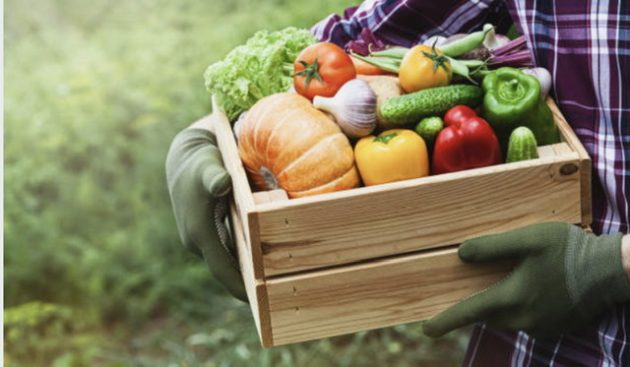
If you grow your organic vegetables, your family can eat delicious, nutritious food without worrying about exposure to harmful chemicals. Some of the basics of organic and non-organic gardening are the same. Plant in a spot that gets at least six hours of full sun a day (eight to 10 hours is even better).
All gardens need to be watered often, so make sure your spigot and hose can reach every part of your plot. Moreover, here some features of helpful gardening advice according to Beagreens page.
Start With Organic Soil And Mulch For Your Garden
Start with healthy soil if you want a healthy organic vegetable garden. Organic matter, like peat moss, compost or manure is the most important part of the soil. Compost is the best choice because it contains microorganisms from dead plants.
They are the microorganisms responsible for providing essential nutrients to plants. You can make your compost pile by giving the organic matter a place or a bin where it can break down. Compost can also be purchased in bulk quantities for a big garden, or it can be purchased in bagged form from garden shops and home improvement stores.
Spreading 1 to 2 inches of mulch on the soil will cut down on weeds. It makes a barrier that keeps weeds from getting to the sun and starting to grow. This layer of mulch also keeps disease-causing spores from floating onto plant leaves. Use something organic, like weed-free straw, cocoa hulls, or newspaper, as mulch. As it breaks down, it will add good organic matter to the soil.
Use An Organic Garden Fertilizer
If you fertilize your plants, they will grow faster and give you bigger crops. Organic fertilizer includes well-rotted manure from animals that eat plants, like rabbits, horses, sheep, and chickens. You can also buy organic fertilizer already packaged online or at a garden center near you. Garden supply and hardware stores also have a wide selection of organic fertilizers.
Experts from the extension service say that when shopping for seedlings, you should choose plants that are a healthy color for the species and don’t have any yellow leaves. Avoid leaves that are wilting or sagging. When you buy transplants, gently tap the plant to get it out of the pot and look at the roots to make sure they are white and well-established. Avoid plants that already have flowers or buds.
Crop Rotation Is A Good Idea.
It’s best to avoid planting related plants in the same spot they were the year before, as this increases the likelihood of all the plants getting sick. The tomato family (which includes tomatoes, peppers, potatoes, and eggplant) and the squash family are two of the most dangerous groups to watch out for (squash, pumpkin, cucumber, watermelon). By moving plants to different parts of the garden, you can stop diseases from spreading and keep the soil from losing its nutrients.
Getting Rid Of Weeds
Oh, those pesky weeds. They seem to appear out of nowhere. Gardeners should plan to pull weeds almost every day and need to check out the Beagreens page for more gardening tips. Weeds are easier to pull by hand after it rains or gets wet. (Wait until the soil dries out a bit if it is very wet and muddy.)
There are a few ways to get rid of a weed. The root is pulled out while the base of the stem is gently pinched. Or, you can use a weeding trowel to pull the roots out. The tops of weeds can also be scraped off with a hoe, though you’ll want to be careful not to harm any nearby veggies. Keep in mind that weeds can come back if you don’t get rid of their roots.
It’s Important To Keep Your Garden Tidy
Many diseases spread quickly through dead leaves. So, walk through your garden once a week, or more often if you can, and pick up any leaves that have fallen. By pulling off an infected leaf, you can sometimes stop a disease from spreading to the rest of the plant. Don’t put dead or sick leaves in your compost pile. Instead, throw them away.
Conclusion
It’s not easy to start a garden, but it’s also not impossible. All of the tips above can help people who are ready to start gardening. Take care of your garden and grow plants that can be eaten, used as decorations, or sold for money. But you still have to be patient when gardening if you want to get the best results. You can also find gardening tips on the Beagreens page.
